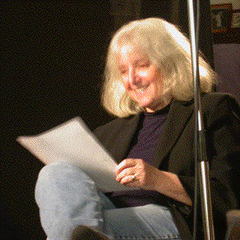I've been doing something lately highly out of character. I've been watching movies and documentaries almost nightly, some on the TV screen and some projected onto a wall in our living room, where I feel like I'm in a theater with all the comforts of home. I fell into Michael Moore's new masterpiece (and I mean that by way of the Internet. I don't know if its illegal, but someone sent it to me, and voila, I had it. I heard that he heard it has been released over the Internet and he said that was fine by him. I figure the artist has to be the real owner. But if I'm going to get into legal trouble for this confession, I hope someone will warn me.
A disturbing moment that went on all evening
Watching Sicko turns out to be one of those riveting but deeply disturbing moments in modern life. I know we're bombing countries where we shouldn't even be, I know we're engaged in torture tactics which apparently (according to a group of psychologists who have studied the matter) were developed by psychologists working with the military. I our poor are getting poorer and our rich richer, I know highly educated people are out of work and facing destitution. I know people are wanting to believe the message of the movie and book "The Secret" --that what you think determines what happens to you, and if you can start thinking about good things, you will to attract good things, coming from the universe to you. What I didn't know was the main message of Sicko, namely that having health insurance is no protection from poor medical care when disaster strikes. You may carry fine insurance and then get cancer, to discover that your carrier considers the treatment being recommended is still in "research phase" and therefore you are ineligible to receive, unless you want to pay out of pocket. Moore brings it home, in enough cases and enough ways to make me very nervous. But that wasn't the only point of the movie. He went on to show health care in other countries and the comparison was almost more compelling than the rather gruesome case stories. He then points out that this is part of an overall situation of fear induction. If we are afraid of losing our health insurance (which may or may not protect us from disaster in a health crisis), that makes us more afraid of losing our jobs, which in turns makes us more afraid of being decisive and strong on our jobs as is. Ripped of our potential for a happy state of confidence, fear takes over and permeates everything. Moore really does it, he takes us on a path that describes the state of fear that perhaps most of us are living in.
The comparisons left us looking selfish and cruel: Is this how we are as a nation?
His comparisons bring home clearly how our system has become selfish and cruel, and a fear-ridden population is far too weakened to change things. In other countries he describes --Canada, England, France and Cuba-- the citizens expect to pay for nationalized health through their taxes. Now why don't we, that's obvious. We're spending all our collected taxes on something most of us don't approve of, a widespread military offensive in the Middle East, Iraq and Afghanistan. We can't exactly spend what we spend on warfare (in the name of democracy and national defence) and have anything left over for health care for everyone. Moore doesn't make this specific connection, but we all know he knows better than anyone where our money is going. Its going to the oil empire living in Texas either in direct dollars or in insuring that the oil or what's left of it, is well protected and in the hands of the same ..umm. families.
That brings me to "The End of Suburbia"
I'm writing this before I've seen the whole documentary because my husband and son got so anxious watching this spectacle that they wouldn't let me finish it. These are two men who can spend endless hours watching men chasing men with every kind of horrific weapon, and blood, guts, and gore exuding from the screen for hours. But they could not handle Suburbia. They said it was monotonous and boring, which I interpret to mean anxious. In Suburbia finally someone is saying what has been clear and obvious for years, but is never or rarely spoken. We live an entirely unsupportable life, dependent on taking and more taking from the environment, without giving anything back. The suburban life style is dependent on the oil economy and oil production is peaking (or has peaked) and will now be dwindling from now to forever. We have had it with oil. We can't expand and we can't even expect to continue as is, at our current standard of living. There is not enough energy to be had to keep us going, even as is, let alone while expanding. The way we developed suburbs for living and then suburbs for working was only possible because of the excess of cheap oil. We could drive long distances to work and home again every evening, because of cheap oil, meaning cheap and available gas for our cars. This is about to come to a stark and frightening halt as availability of oil rapidly diminishes. The message of Suburbia is clear, we have to change our whole lifestyle and economic set up by necessity not by choice.
The two documenatries belong together
The Moore movie ends up depicting us as a very selfish and cruel nation, jibing well with the message of Suburbia where people have been thriving by ripping off the planet of all of its natural energy resources. We are going to be punished, or if we can get the hit of Sicko, we are being punished right now as our requests for medical care are "denied" and denied and denied. Our way of life in untenable. We need a self-sustaining lifestyle where we plant our food in our backyards and in our community gardens, we work and live in the same location, we make our own clothes locally, no longer depending on the delivery of goods to Walmart from China. Same goes for our dishes, and everything else that becomes junk (or to use the GTD slogan/word, our stuff) in our houses. We cut back and change absolutely everything about how we live and how we function on a day to day basis, simply because we have to. With the end of oil, we have to stop our military offenses because they are so dependent on the oil economy. We can't fly planes without oil. So maybe the change in our life style will free up some taxes to go to free national health care.
No wonder the guys got so anxious. Meanwhile I'd like to see the end of the documentary I guess I have to do it the guys aren't with me.
Subscribe to:
Post Comments (Atom)


No comments:
Post a Comment